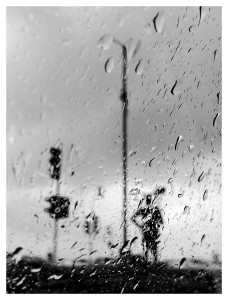MUMBAI—There is a liquid quality to Mumbai. Water is everywhere, omnipresent without being always visible. It is especially so now in the season of the monsoon, but even during the dry season there is a wetness and fluidity to the place. It is hard to catch your breath as it feels like half the air you breath is water. Your skin runs with sweat and the buildings look half eroded.
Mumbai is a coastal city and, by Indian standards, not an old one. There are fishing villages here, like  the one at Worli, that quite likely existed since near the beginning of human time. They remain villages, clinging to the rocks and to their ancient way of life as the mega-city grows ever larger around them. But that city, Mumbai, is not so very old. Originally there were seven islands here. They were ceded to the Portuguese in 1534 and what is now India’s Maximum City began to grow. By the 18th century the city was in the hands of the British who began a massive land-reclamation project, filling in the sea between the islands, making land where there was water.
the one at Worli, that quite likely existed since near the beginning of human time. They remain villages, clinging to the rocks and to their ancient way of life as the mega-city grows ever larger around them. But that city, Mumbai, is not so very old. Originally there were seven islands here. They were ceded to the Portuguese in 1534 and what is now India’s Maximum City began to grow. By the 18th century the city was in the hands of the British who began a massive land-reclamation project, filling in the sea between the islands, making land where there was water.
While there is argument over the history and etymology of both the names, “Bombay,” and “Mumbai,” it seems generally accepted that “Bombay” is an Anglicization of the Portuguese, “Bom Bahia,” or, “Good Bay.” Mumbai has that, a deep water, protected harbor, calm and safe on the east side of the peninsular city. The western edge, however, feels like standing on the brink of the world. There, in Bandra and Worli, along the long, curving promenade of Marine Drive, the Arabian Sea comes on in long, powerful waves. It is strange to look at, as are all unfamiliar seas. It is a shade of steel grey with an undertone of dull gold and the sky above it is the same color. The waves have come from a long way off and there is an insistent, linear power to them. For now they are stopped. They crash ashore, one after another, breaking on the sea wall. You know they will never stop, that the water will eventually reclaim what man has claimed from it.
On a day when the rain is heavy, you can stand on the sea wall. The waves come ashore. Salt mist is blown off them. The rain comes down in sheets and there is nothing but the roar of the sea and the roar of the rain falling on it. There is no distinction between cloud and air and ocean, just a world of water, of swirling grays and whites and you think that this might be how old Noah felt on the deck of the Ark, seeing the end of the world in God’s watery wrath.
Post a Comment